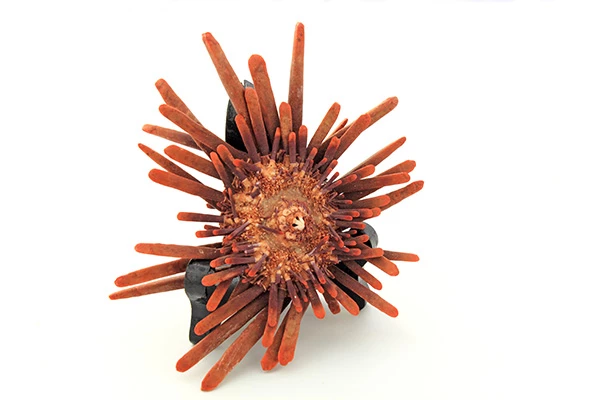
19.02.2020 by NETZSCH Applications Laboratory
How Thermal Analysis can unlock Nature’s Secrets
Amorphous calcium carbonate (ACC) is the amorphous and least stable polymorph of calcium carbonate. ACC is extremely unstable under normal conditions and is found for example in sea urchins and corals. The influence of ACC on the outstanding macromechanical properties of Echinoderm calcite is unknown. In this paper Thermal Analysis methods were used to investigate the Thermal StabilityA material is thermally stable if it does not decompose under the influence of temperature. One way to determine the thermal stability of a substance is to use a TGA (thermogravimetric analyzer). thermal stability of sea urchin spines.
In this investigation, full-grown spines of the slate pencil urchin are shortly heated to 250° C. Techniques used were Thermogravimetry, Mass Spectrometry, Differential Scanning Calorimetry and Dilatometry. The Thermogravimetry Mass Spectrometer helped to investigate the Thermal StabilityA material is thermally stable if it does not decompose under the influence of temperature. One way to determine the thermal stability of a substance is to use a TGA (thermogravimetric analyzer). thermal stability of the spines. Mass spectrometer data proved the release of water and carbon dioxide, related the release to a specific temperature range and enabled quantification of the gases released. The length change during heating was investigated by Dilatometry. In addition, the expansion behaviour of Sea Urchin Spines was compared to the dilatation of geological calcite. (Lauer, C., Haußmann, S., Schmidt, P., Fischer, C., Rapp, D., Berthold, C. and Nickel, K.G. (2020) Find more information about TG-DSC, Evolved Gas Analysis and Dilatometry More detailed information (not free of charge) can be found here: https://doi.org/10.1002/adem.201900922